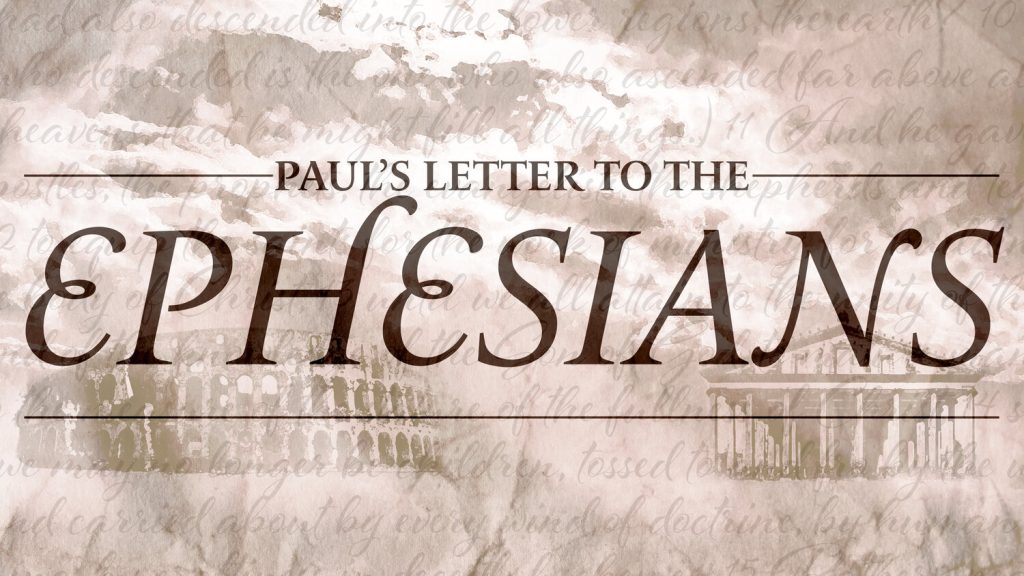Tuesday night we will discuss Ephesians 5:21-6:9 where we find Paul’s household codes. This email is available online.
Household Codes:
These readings are Paul’s so-called household codes which concern the relationship between husband/wife, parents/children, and masters/slaves. We had an extended discussion about these codes last summer in our study of 1 Peter 3. Please review that discussion on other ancient household codes and how we in America today are WEIRD (western, educated, industrialized, rich, and democratic) compared to almost every other human society today and in the past.
Paul’s household codes were also very weird and radical for his time as well. Under Roman law, the Pater familias had absolute power over everyone in his household, e.g. Vito Corleone. Paul’s household codes reverse this dynamic, in the same way that Jesus himself teaches that the way of the Cross is the exercise of servant-authority only. Mark 9:35. The very basis of Paul’s household codes is his introductory statement that we must “be subject to one another.” v.21. In the remaining three examples, Paul transforms the existing roles (husband/wife, father/children, master/slave) into something new. The social structure or shell of these institutions is left in place, however, Paul’s teaching radically reimagines and redefines the inner reality of these existing institutions. As are the other ethical rules, these codes are still about being the light of the world and exposing the darkness in the world.
Husbands and Wives: (vv.22-33)
The first thing to notice is that Paul addresses wives. Most contemporary writings, like Aristotle’s politics, are addressed solely to the men who are head of the households and these men are to teach their subordinates how to behave. Unlike the pagan Gentile writers, Paul addresses women as adults capable of hearing and following moral instructions. Wives are to be subordinate and subject to their husbands. v.22. This is simply making the teaching of v.21 specific to a certain class of people in a certain relationship. This submission should be a natural result of the wife being in the Spirit.
Paul then instructs husbands to love their wives as Christ loves the Church. Paul gives this instruction six times in these verses to ensure his teaching is heard. As Paul has written, Christ loves the Church by fully divesting himself of his divine privileges and becoming a slave. Phil. 2:7. Paul writes that the husband is the head/source of the wife, in the same way that Christ is of the church. In other words, the husband’s servitude must come first and be the cause of the wife’s submission. Within these verses, Paul makes explicit his instruction in v.21 that each “be subject to another.”
Christ and the Church: (vv. 26-27)
Paul’s working analogy for husband and wife is Christ and the Church. In the Old Testament, Israel is often depicted as the wife of God. See, Jer. 31:32, Hos. 2:16-22, Song of Songs. Elsewhere, the Church is also seen as the Bride of Christ. Rev. 21:9. In this section, Paul intertwines his marriage analogy with a deeper teaching about the Church and the work of Christ. This teaching is that Christ’s love and sacrifice sanctifies the Church. Christ washes the church in the word of God (the oral witnessing of the gospel, see, 6:19) and thereby causes her to be without spot or blemish – a perfect and holy body. Christ does this work on his own. The result of this continuous washing is the glorious church as John describes as existing in the New Jerusalem.
Dinner is a 6. The menu is Chili. Discussion about 6:45. Compline around 8. Hope to see you here!
And he said to them, “The kings of the Gentiles exercise lordship over them; and those in authority over them are called benefactors. But not so with you; rather let the greatest among you become as the youngest, and the leader as one who serves. For which is the greater, one who sits at table, or one who serves? Is it not the one who sits at table? But I am among you as one who serves. Luke 22:25-27


Pingback: Ephesians 6:1-9, Household Codes pt.2 – Ancient Anglican
Pingback: Reviving Old Stratch – The Lucifer Effect – Ancient Anglican